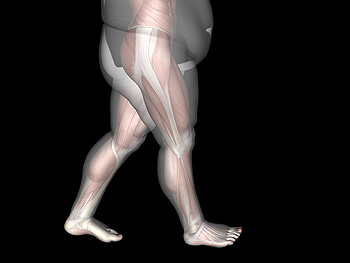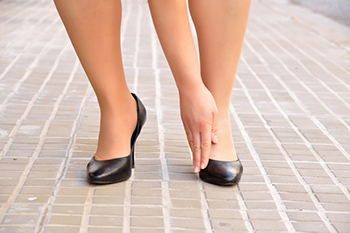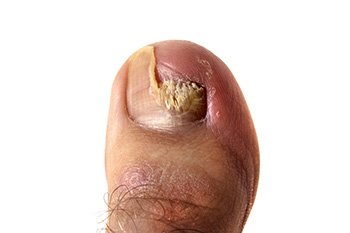
Research has indicated that the number of people who are obese has doubled across the globe in the last forty years, and being overweight often affects foot health. This can be a result of the added weight the feet must support, and daily activities may be difficult to complete. Higher body mass index may lead to developing certain foot conditions that can include plantar fasciitis, heel spurs, and Achilles tendon injuries. Overweight people can walk slower and have shorter stride lengths. Stress may be increased on the soft tissues and joints, which may lead to developing overuse injuries. Additionally, the ankles may lose strength from carrying the extra weight. Flat feet may develop for the same reason, and this can be another reason to lose excess weight. As this is being accomplished, it may be easier to build strength in the intrinsic muscles that can help to stabilize the arches. If you are overweight and have foot problems, it is suggested that you confer with a podiatrist who can help you to manage this condition.
The more you weigh, the harder your feet must work to support your body. If you’re an obese individual and are concerned about your feet, contact one of our podiatrists from Associates in Podiatry, PC. Our doctors can provide the care you need to keep you pain-free and on your feet.
Obesity and Your Feet
People who are overweight are putting more pressure on their ankles, knees, and hips as well as their feet. This unfortunately can lead to variety of different issues.
Problems & Complications Stemming from Obesity
- When the body is overweight, it tries to compensate by changing the way that it moves. An obese person may lean forward and put extra weight on the wrong part of the foot. This puts unnecessary stress on the feet.
- Obese people are also more likely to develop type II diabetes which is a condition that causes a lot of foot problems. People with diabetes often don’t feel the cuts and sores that they may have on their feet, which can lead to more complicated and severe issues.
- Plantar fasciitis is another foot condition that can be caused by obesity. Plantar fasciitis is an inflammation of the tissue along the bottom of the foot, which causes pain and stiffness while walking and climbing stairs.
If you have any questions, please feel free to contact our offices located in Pittsburgh-South Hills, and Pittsburgh-Bellevue, PA . We offer the newest diagnostic and treatment technologies for all your foot care needs.




